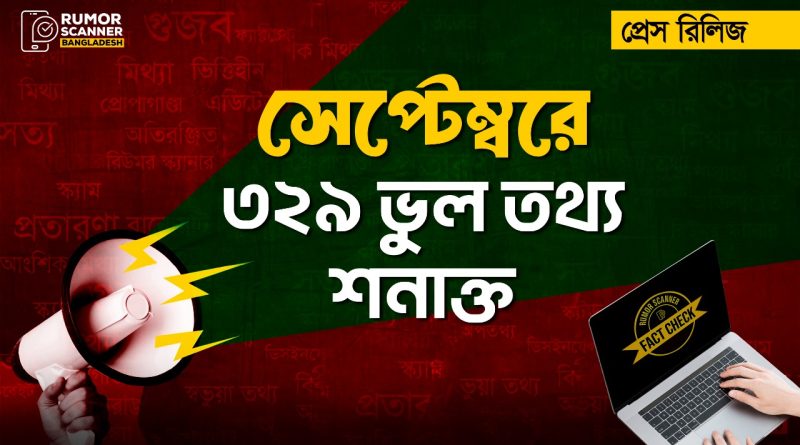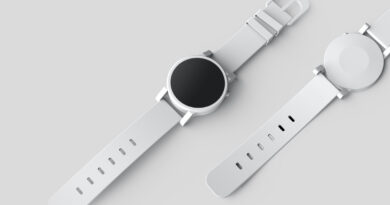Fact-checking organisation Rumor Scanner Bangladesh detected 329 pieces of misinformation circulating online in September, with politics emerging as the most targeted sector.
According to the group’s monthly fact-check tally, 229 cases — nearly 70 percent — were political in nature. This was followed by 53 on national issues, 20 on religion, 11 on international affairs, five on entertainment and literature, four on education, and seven on sports.
Rumor Scanner’s investigation unit also published in-depth reports on two separate sets of statistics linked to the DUCSU and JUCSU elections, as well as on the misuse of a female news anchor’s name and photo through a fake verified account spreading disinformation.
Misinformation Formats
- Videos accounted for the majority of cases (215).
- Text-based falsehoods stood at 79.
- Image-based distortions numbered 35.
By type, 233 were outright false, 33 were manipulated, and 63 were misleading.
Target Groups
- Men were involved in 201 cases, while women were linked to 85.
- Youths (18–35 years) were the most targeted age group with 113 cases, followed by seniors (60+) at 90, middle-aged adults at 73, and children at five.
Platforms
Facebook remained the main hub with 289 cases, followed by Instagram (156), TikTok (82), YouTube (46), X (40), and Threads (13).
Notably, 13 cases were detected in Bangladeshi mainstream media outlets, while two instances came from Indian media.
Sensitive Themes
- Communal disinformation remained a concern, with 15 cases, including eight spread from Indian social media accounts.
- Government-related misinformation included six negative narratives targeting the interim administration.
- Prime Minister’s Chief Adviser Dr Muhammad Yunus was targeted in 16 cases, all negative. Other advisers, including Jahangir Alam Chowdhury, Dr Asif Nazrul, Asif Mahmud Sozib Bhuiyan, Syeda Rizwana Hasan, and Mahfuz Alam, were also subjects of disinformation.
Political Parties Targeted
- Jamaat-e-Islami and affiliates were linked to 69 cases, 91pc of which were negative.
- BNP and affiliates followed closely with 68 cases, all negative.
- National Citizen Party (NCP) faced 23 cases, almost all negative.
- Although banned, the Awami League and its affiliates were linked to 145 cases, but nearly 98pc carried positive spins, including 23 favourable narratives about party chief Sheikh Hasina.
State Institutions Targeted
- The Bangladesh Army (25 cases), Police (23), BGB (6), Air Force (2), Navy (1), and RAB (1) were all subjected to misinformation.
New Trends
- AI-generated false content was flagged in 18 cases.
- Deepfake content was identified in 13 cases.
- Misinformation spiked around major events including the DUCSU election (43 cases), Khagrachhari violence (20), JUCSU election (14), UN Assembly (13), Durga Puja (5), Asia Cup (5), and the JaPa-JOP clash (2).
Fake Media Content
The use of fake photocards, logos, and doctored headlines to impersonate mainstream news outlets surged again, with 33 cases involving 15 Bangladeshi media outlets detected last month.
Tanvir Mahtab Abir
Senior Fact-checker, Rumor Scanner Bangladesh






